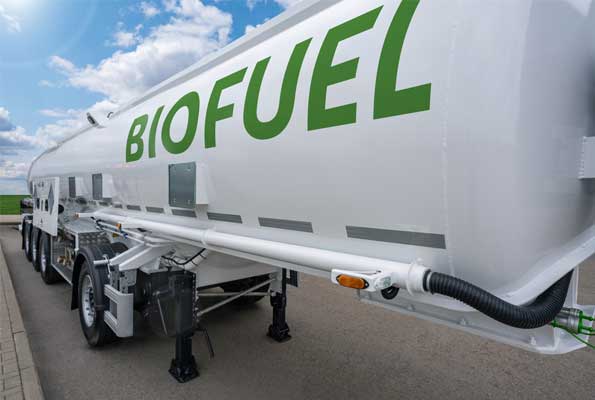The CEO of Khazna Data Centres, Hassan Alnaqbi recently informed the media about his venture taking up the responsibility to consider practical ways to increase the sustainability of its data centers.
“As we continue on this revolutionary road by converting to biofuel for our generators, today’s news is a significant step in that direction. We anticipate significant reductions in carbon emissions as a result of this strategy change, which perfectly complements Khazna’s objective of establishing high standards for environmental responsibility within the data centre sector without sacrificing operational dependability and efficiency,” he said.
The initial phase of the pilot will involve blending biofuel with conventional diesel fuel and performance evaluation. Following that, Khazna plans to use biofuel in all of its data centres.
Even though the corporation made no specific mention of it, Khazna is probably looking to employ hydro-treated vegetable oil (HVO). Low-emission biofuel HVO promises outstanding performance without requiring the modification or replacement of diesel gen-sets. It can be combined with fossil fuel diesel as needed and is a drop-in fuel.
A rising number of businesses are considering diesel substitutes as a way to lessen their carbon impact and run more environmentally friendly backup operations.
Amazon has started using the fuel in Sweden and Ireland. The operators Kao, DataVita, and Datum in the UK, Compass in the US, LCL in Belgium, and DEAC in Latvia are using HVO as the fuel for their backup generators.
The French division of Digital Realty has also embraced HVO for its new PAR8 facility in Paris as well as in Madrid, Spain, and intends to gradually extend its use throughout the continent. While Equinix has stated it is conducting a study using the fuel, Pure, Vantage, and Equinix are all HVO users.
At its generator manufacturing facility in Brest, France, Kohler has switched over 325,000 litres of fuel for HVO.
The majority of HVO manufacturing is concentrated in Europe or the US and is derived from waste materials or vegetable oils. In the Middle East, Khazna appears to be the first operator to declare the implementation of HVO.
With six more under construction, Khazna will soon manage nine data centre locations throughout the UEA. After the October 2021 merger with G42 and Etisalat Group, the number of facilities under the corporation expanded dramatically.
After the three companies merged, Khazna became the biggest provider of data centres in the UAE. Additionally, the business is building a plant in Cairo, Egypt.
The fast spread and use of digital technology is having a significant impact on the economies around the world and is paving the way for the development of a new digital economy.
As the nation undergoes a constant digital transformation and businesses implement next-generation digital infrastructure, adaptability, and transformation, the UAE maintains its position as the Middle East’s technology and digitalization hub.
As it enables companies and big organizations to hasten their journeys toward digital transformation, Khazna Data Centers says it is determined to further boost the nation’s status as a top hub for data centres in the Middle East.
By the end of 2023, Khazna plans to have over 300 megawatts of planned capacity spread across all of its sites in the UAE, which includes operating 12 data centres currently, 13 data centres that are currently under development, and three more that are in the pipeline.
Khazna Data Centers is presently managing the twelve new combined data centres network after the legally binding agreement between e& (previously known as Etisalat Group) and G42 to unite their data centre offering in late 2022, making it the largest data centre provider in the Middle East.



